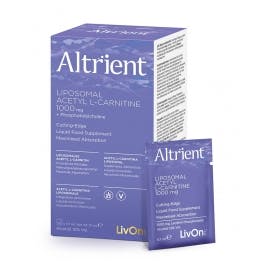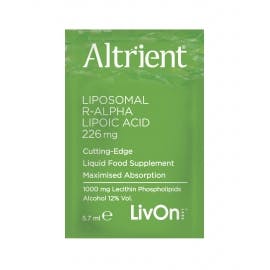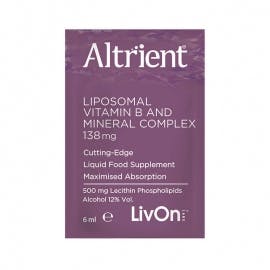How Strong is Your Heart this Valentines Day?
February is as good a time as any to get thinking about whether your heart’s in good shape.
There are a number of factors that affect your heart health both physical and emotional, so you need to consider both areas if you want to live a long and healthy life with a good dose of romance thrown in for good measure!
Emotions and the Heart
The link between emotions and heart health has been studied extensively resulting in evidence that shows high levels of stress are associated with coronary heart disease (CHD). Furthermore, experts have found that emotional stress is a better predictor of death from cardiovascular disease than smoking.
According to the British Journal of Medical Psychology, people who had the most difficulty managing their stress levels had a 40% higher death rate than those who did not.
Social isolation, frustration, anxiety, depression, aggression, hostility and lack of social support all place a tremendous stress on the body which contributes to the progression of CHD. Other lifestyle factors also play a part in developing poor heart health:
- Excessive stress at work
- Shift work
- Bereavement
- Marital stress
How emotions affect your health
The physical manifestation of adverse emotions such as those mentioned above can often be linked to the stress hormones. These feelings frequently result in physical symptoms such as palpitations, abnormal heartbeat and muscle tension despite the absence of physical activity.
Stressful emotions trigger the brain to release stimulating hormones that raise your blood pressure and blood sugar levels. This prompts a cascade of biochemical mechanisms in your body that are designed to protect you from potentially threatening events.
In acute episodes, your body manages these fluctuating hormones very effectively, but in chronic situations, it can eventually lead to inflammation, an increase in blood clotting factors and diabetes which are all well-known risk factors for CHD. Stress also affects the rate at which the body can clear unhealthy fats from your arteries.
Coping mechanisms
When you feel overwhelmed, it can be very difficult to cope with. You might not feel motivated to exercise or eat healthily but you can make small changes. A good start is to build up positive social connections. Spend more time with friends and family, join a group in your community or take up a hobby.
Evidence shows that supportive social relationships and positive psychological tools help to reduce stress and depression. Even though it may seem like a chore at times, regular exercise is one of the simplest ways to raise your happy hormones, and reduce stress.
Top tips for improving your mood:
- Put on your favourite record and dance around the room
- Learn a relaxation technique such as deep breathing or meditating
- Treat yourself to a massage or beauty treatment
- Take your dog for a walk
- Buy yourself some flowers
- Be kind to someone
Nutrition and your heart health
The global population is expanding which brings increasing pressure to increase the production of food. As a result, we have intensive farming practices which have compromised the nutrient content of the soil food is grown in meaning diet alone cannot always provide adequate levels of essential nutrients. It pays to eat organic foods and includes supplements that can be tailored to support cardiovascular health.
How to reduce your risk of heart disease:
- Increase fibre which helps to maintain healthy cholesterol levels. Flaxseeds, oats, whole-grains, beans and fruits are good choices.
- Include garlic in your diet regularly; it helps to lower blood pressure and keep your arteries healthy.
- Increase foods like broccoli, berries and peppers that are rich in the powerful antioxidant vitamin C. This nutrient helps to maintain healthy blood flow and cholesterol levels.
- Add some turkey, pork or peanuts into your menus. These contain the amino acid arginine used by the body to make nitric oxide, which dilates blood vessels helping to improve blood flow.
- Eat a portion of oily fish at least twice a week. Salmon, mackerel and fresh tuna contain anti-inflammatory substances known to be beneficial to heart health.
- Re-think your lifestyle: Lose weight (if appropriate), stop smoking, exercise more and reduce stress – try yoga or meditation. These changes may reduce your risk of CHD by half.
Supplements to support your heart:
R-Alpha Lipoic Acid (R-ALA)
ALA helps to recycle heart-healthy antioxidants such as vitamin C and E and has been found to offer a protective effect against cardiovascular disease. Furthermore, its beneficial effects are increased when taken in supplement form. Animal studies have shown that supplementing with ALA can lower triglycerides, reduce blood vessel inflammation, prevent the formation of arterial lesions and reduce weight gain – all risk factors for CHD.
Acetyl L-Carnitine
Acetyl-L-Carnitine helps to produce energy in the mitochondria – the powerhouses of the cells which are highly concentrated in the heart. It also reduces oxidative stress which improves mitochondrial function. Dysfunction of the mitochondria is thought to affect the regulation of blood pressure and vascular tone.
Research has shown that patients treated with Acetyl-L-Carnitine following an acute myocardial infarction reduced their risk of death by 27%. Angina was reduced by 40% and ventricular arrhythmias by 65%. Another trial administering a combination of Acetyl L-Carnitine and R-Alpha Lipoic Acid resulted in significant blood pressure lowering effects amongst patients with coronary artery disease.
Omega 3 essential fatty acids
Oily fish, walnuts and seeds are a good source of essential fatty acids, which help to support healthy arteries, normal cholesterol levels, blood flow and normal heart rhythm. Thousands of studies support the importance of omega-3 fatty acids for maintaining cardiovascular health. Large doses of Omega 3 have been found to cut the risk of a heart attack by 30%.
A Vitamin B complex
It’s not commonly known but excessively high levels of the amino acid homocysteine are an independent risk factor for CHD. This is because it promotes the deposition of sticky, artery-hardening platelets in blood vessels. Vitamin B6, folic acid and B12 help to reduce the concentration of homocysteine in the bloodstream maintaining normal healthy levels.
Researchers have identified that women who eat more vitamin B6 and folate-rich foods can lower their risk of stroke and heart disease, men also benefit by reducing their risk of heart failure. Supplementing is recommended as the average dietary intake of these B vitamins is often too low.
Shop wisely when choosing supplements….
For the body to benefit nutrients have to be effectively absorbed which isn’t always the case with poor quality products. Research has shown that liposomal supplements such as Altrient B have far greater bioavailability than standard oral supplements, delivering up 98% of the essential nutrients directly to the cells that need them.
Jacqueline Newson BSc (Hons) Nutritional Therapy
References
Arnold S, Lonn E, McQueen M et al. Homocysteine lowering with folic acid and b vitamins in vascular disease. N Eng J Med. (2006): 354 (15): 1567-77.
Atkins R, Branley P, Hutchison B, et al. Cardiovascular morbidity and mortality in atherosclerosis and folic acid supplementation trial (ASF AST) in chronic renal failure: a multicenter, randomized, controlled trial. J Am Coll Cardiol. (2006) 47 (96): 1108.
Clayton P (2004). Health Defence. Accelerated Learning Systems: Bucks UK.
Khayyam-Nekouei Z, Manshaee G, Neshatdoost H, Sadeghi M and Yousefy A. Psychological factors and coronary heart disease. ARYA Atherosclerosis. 2013; 9 (1):102-111.
Cui R, Date C, Iso H, Kikuchi S and Tamakoshi A for the Japan Collaborative Cohort Study Group. Dietary Folate and Vitamin B6 and B12 Intake in Relation to Mortality From Cardiovascular Diseases. Japan Collaborative Cohort Study. Stroke, 2010.
Diez-Roux AV et al. Psychosocial Factors and Risk of Incident Heart Failure. The Multi-Ethnic Study of Atherosclerosis. Circulation: Heart Failure.2016; 9: e002243.
Gokce N et al. Effect of Combined Treatment with Alpha Lipoic Acid and Acetyl L-Carnitine on Vascular Function and Blood Pressure in Coronary Artery Disease Patient. J Clin Hypertens (Greenwich). 2007; 9, (4): 249–255.
Low CA, Matthews KA and Thurston RC. Psychosocial factors in the development of heart disease in women: current research and future directions. Psychosomatic medicine. 2010;72, (9):842-854.
NIH. Carnitine. https://ods.od.nih.gov/factsheets/Carnitine-HealthProfessional/. [accessed 21.11.17].
Oregon State University. "Lipoic Acid Could Reduce Atherosclerosis, Weight Gain." ScienceDaily. ScienceDaily, 17 January 2008. andlt;www.sciencedaily.com/releases/2008/01/080114162506.htmandgt;.[accessed 10.11.17]
Warren C. Emergent Cardiovascular Risk Factor: Homocysteine. Prog. In Cardio. Nursing. 2002; 17,(1), 35-41.




.jpg?auto=format&q=45&w=262&trim=auto)
.jpg?auto=format&q=45&w=262&trim=auto)
